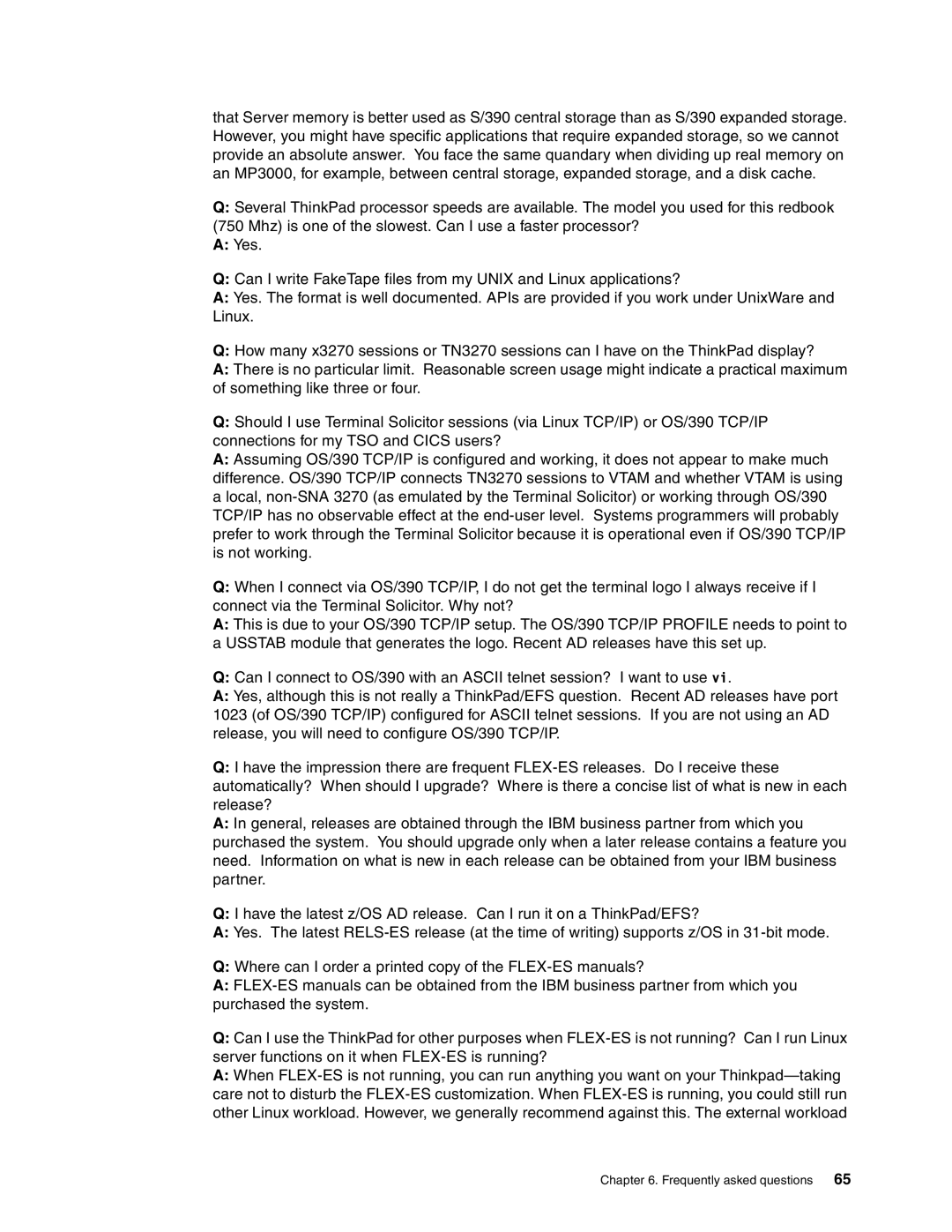that Server memory is better used as S/390 central storage than as S/390 expanded storage. However, you might have specific applications that require expanded storage, so we cannot provide an absolute answer. You face the same quandary when dividing up real memory on an MP3000, for example, between central storage, expanded storage, and a disk cache.
Q:Several ThinkPad processor speeds are available. The model you used for this redbook (750 Mhz) is one of the slowest. Can I use a faster processor?
A:Yes.
Q:Can I write FakeTape files from my UNIX and Linux applications?
A:Yes. The format is well documented. APIs are provided if you work under UnixWare and Linux.
Q:How many x3270 sessions or TN3270 sessions can I have on the ThinkPad display?
A:There is no particular limit. Reasonable screen usage might indicate a practical maximum of something like three or four.
Q:Should I use Terminal Solicitor sessions (via Linux TCP/IP) or OS/390 TCP/IP connections for my TSO and CICS users?
A:Assuming OS/390 TCP/IP is configured and working, it does not appear to make much difference. OS/390 TCP/IP connects TN3270 sessions to VTAM and whether VTAM is using a local,
Q:When I connect via OS/390 TCP/IP, I do not get the terminal logo I always receive if I connect via the Terminal Solicitor. Why not?
A:This is due to your OS/390 TCP/IP setup. The OS/390 TCP/IP PROFILE needs to point to a USSTAB module that generates the logo. Recent AD releases have this set up.
Q:Can I connect to OS/390 with an ASCII telnet session? I want to use vi.
A:Yes, although this is not really a ThinkPad/EFS question. Recent AD releases have port 1023 (of OS/390 TCP/IP) configured for ASCII telnet sessions. If you are not using an AD release, you will need to configure OS/390 TCP/IP.
Q:I have the impression there are frequent
A:In general, releases are obtained through the IBM business partner from which you purchased the system. You should upgrade only when a later release contains a feature you need. Information on what is new in each release can be obtained from your IBM business partner.
Q:I have the latest z/OS AD release. Can I run it on a ThinkPad/EFS?
A:Yes. The latest
Q:Where can I order a printed copy of the
A:
Q:Can I use the ThinkPad for other purposes when
A:When
Chapter 6. Frequently asked questions | 65 |
